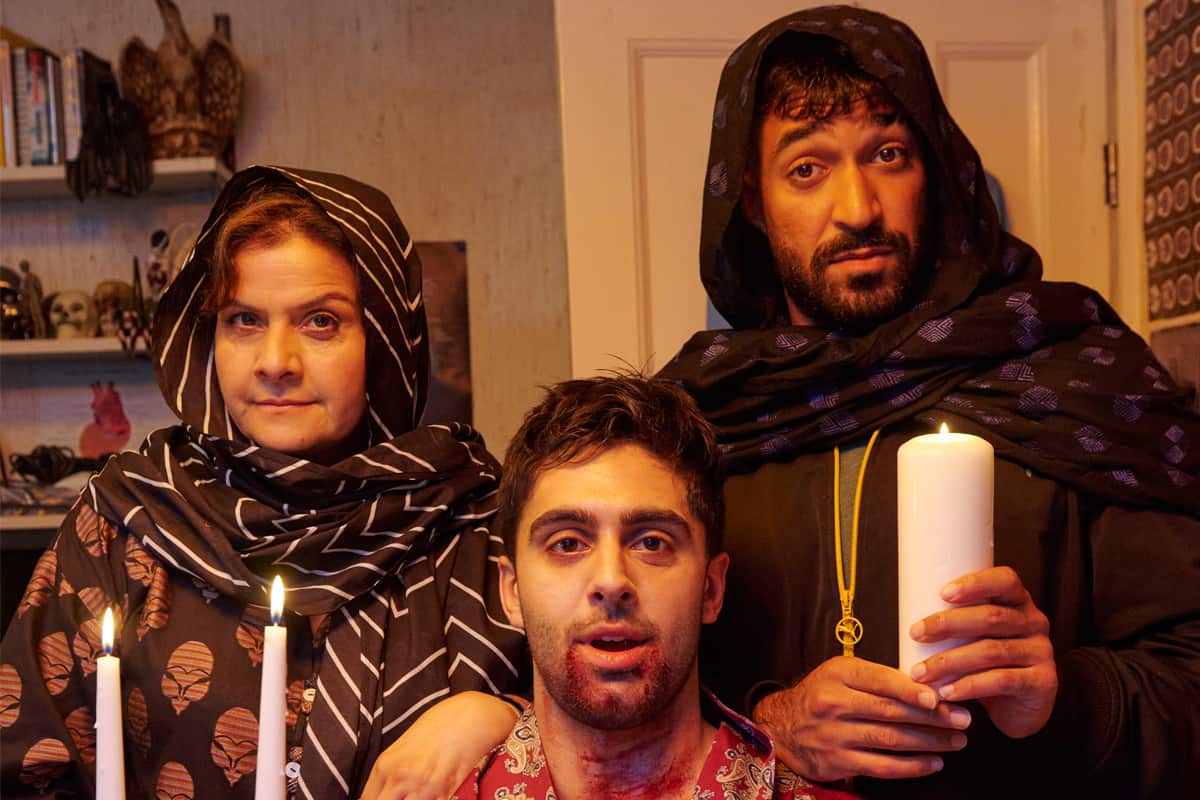This new six-part comedy series is as razor-sharp as a vampire’s fangs, skewering everything from the horror genre’s historically iffy treatment of people of color, lazy media stereotypes of Muslims, and real-life fixtures of Islamic communities. It never feels bogged down by the weight of the issues behind it, though, always staying true to the lightness of its silly — but ingenious — concept.
The show follows the goofy Abdulla (Arian Nik), a British-Pakistani trainee doctor and horror nerd who has enough on his plate — what with an unavailable crush and the social pressures of being a not-so-perfect Muslim — without also having to contend with being turned by vampire-dominatrix Kathy (played with gusto by Jaime Winstone). Writer Kaamil Shah manages to pack an impressive amount of cutting humor into each 20-ish-minute episode, whether through Kathy railing against the appropriation of vampire culture during Halloween (presented less as an anti-woke joke and more as a wry analogy to media misrepresentation of real minorities) or a wink to Muslims about the epidemic of hypocritical haram police in our communities. This balance between universal humor and inside jokes that speak directly to — rather than over the heads of — British Muslims makes Count Abdulla a very welcome addition to TV comedy in general, as well as a refreshing widening of the horror genre.
Synopsis
Sitcom following a British Pakistani Muslim junior doctor based in London who is bitten by a halal-hunting vampire
Storyline
When a British-Pakistani Muslim doctor is bitten by a vampire, it turns his already messy life upside down.
TLDR
This light-hearted sitcom dares to ask: if blood isn't halal, what do Muslim vampires drink?
What stands out
Though it never loses sight of its comedy roots, Count Abdulla works to redress the sidelining and more explicit mistreatment of people of color that both horror and media in general are guilty of (something it satirizes in its very first minutes). That — plus its commitment to exploring and poking fun at the nuances of British Muslim experiences in close, informed detail — puts it up there with the likes of We Are Lady Parts and Mo in breaking new TV ground and claiming back cultural real estate for much-maligned Muslim communities.



